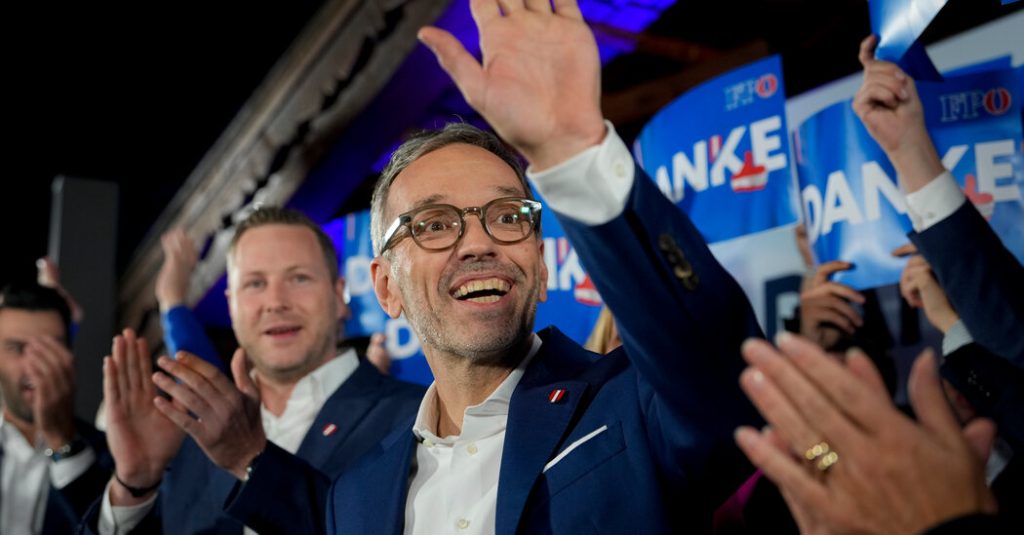The far-right Freedom Party of Austria, led by Herbert Kickl, has gained a realistic chance of leading the country’s next government after talks between mainstream parties collapsed. This would mark a new high-water mark for the rise of the far right in Europe, with Mr. Kickl expected to be appointed as chancellor by President Alexander Van der Bellen. The party was founded in the 1950s by former members of the Nazi paramilitary police and campaigns on a strong anti-immigrant platform, calling for harsh measures against asylum seekers and migrants. Mr. Kickl has promised to make Austria a fortress and has been likened to the rise of German fascism in his campaign speeches.
Despite initial promises not to form a coalition with the Freedom Party as long as Mr. Kickl was leading it, the conservative Austrian People’s Party (ÖVP) has now expressed openness to entering into coalition talks with the far-right party. This comes after the resignation of ÖVP Chancellor Karl Nehammer, who stepped down from both the chancellorship and party leadership. Observers of Austrian politics have expressed alarm at the developments, with concerns about the country’s stability and a perceived shift to the right.
In the recent national elections, the Freedom Party received 29% of the vote, while the ÖVP, which has been leading the government since 2017, received 26%. The prospect of a government under Mr. Kickl has raised concerns among voters and political analysts, who see it as a reflection of growing dissatisfaction with migration and economic turbulence. If a coalition is formed, it could be among the first openly far-right governments in Europe, following similar trends in countries such as France and the Netherlands.
Coalition talks between the Freedom Party and the ÖVP are expected to take place in the coming weeks and months, potentially leading to a new government. The Freedom Party is currently part of five state governments and had previously been in a coalition with the ÖVP until a scandal involving a fake Russian heiress and party leader brought it down. With the collapse of talks between mainstream parties, analysts believe that coalition talks between the Freedom Party and the ÖVP may proceed more smoothly, as the parties have significant overlap in their policies and platforms.
Political scientists in Vienna suggest that the ÖVP’s previous commitment to not work with the Freedom Party may have been more about strategic positioning within the coalition and maintaining leadership. Now that barriers have been torn down, the possibility of a coalition between the two parties seems more likely. Despite concerns about the rise of the far right in Austria, the potential coalition could represent a new direction for the country’s government, with implications for migration policy and other areas. The outcome of the coalition talks and the formation of a new government under Mr. Kickl will be closely watched by observers both in Austria and across Europe.








